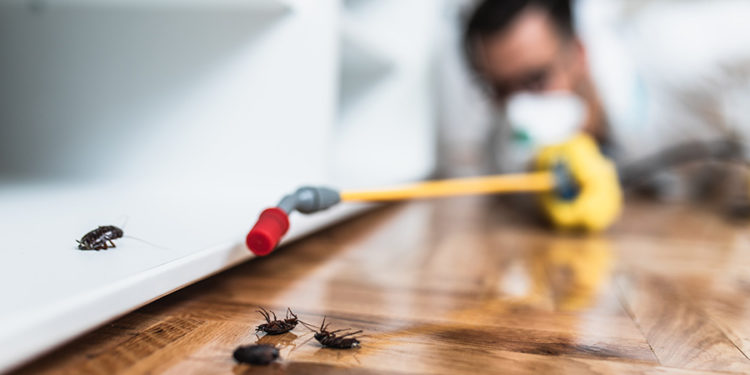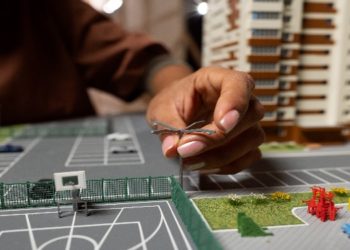A small scratch in a wall, a faint sound in the attic, or a single cobweb in the corner might not seem urgent. Many homeowners dismiss these signs as minor inconveniences. But when it comes to pests, small problems escalate quickly. Ignoring the need for early Pest Control can transform minor annoyances into major expenses. From structural damage to health concerns, the real cost of delay often exceeds what proactive treatment would have required. With insight from companies like Habitat Pest & Lawn, it becomes clear why early action matters far more than most people realize.
The True Price of Procrastination
Pests multiply at astonishing rates. A mouse or two in the basement can become a colony within weeks. A single spider egg sac can hatch dozens of offspring. By the time infestations are visible, they are already well established.
The cost of ignoring these early signs extends far beyond discomfort. Structural repairs, contaminated food, ruined insulation, and medical expenses from bites or diseases add up quickly. Compared to these hidden costs, preventive Pest Control is a far more affordable investment.
Structural Damage from Rodents
Rodents are among the most destructive pests. They chew incessantly, driven by the need to wear down their continuously growing teeth. This habit leads them to gnaw through wood, drywall, insulation, and even electrical wiring.
Rodent Control becomes essential when considering the risks of unchecked activity. Frayed wires create fire hazards, while compromised insulation reduces energy efficiency. Homeowners may find themselves replacing large sections of a home simply because a small family of mice was left alone too long.
Addressing rodents early not only prevents these expensive repairs but also avoids the dangers associated with damaged infrastructure.
The Subtle Dangers of Spiders
Spiders often spark fear, but their hidden costs are less obvious. While many species are harmless, some pose medical risks through venomous bites. More importantly, their presence often signals an underlying insect problem, since spiders thrive where food sources are plentiful.
Spider Control is therefore not only about removing webs or preventing bites. It also addresses the broader ecosystem within a home. Failing to act early means insects continue to multiply, which in turn sustains and expands spider populations. Over time, this cycle becomes much harder to break, leading to both discomfort and additional pest challenges.
Health Risks That Escalate
Beyond property damage, pests threaten human health in multiple ways. Rodents spread diseases through droppings and urine. Insects contaminate food and surfaces with bacteria. Spiders can cause reactions in sensitive individuals.
When Pest Control is delayed, these health risks accumulate. Allergens from droppings and shed insect skins linger in the air, aggravating respiratory issues. Foodborne illnesses spread more easily when pests contaminate kitchens and pantries. Treating these health impacts is often far more costly than preventing them in the first place.
Financial Impact on Property Value
Homes with ongoing pest problems lose value quickly. Buyers are reluctant to invest in properties with evidence of infestations or structural damage. Even after treatment, a history of neglect can lower perceived value, forcing sellers to accept reduced offers.
Proactive Rodent Control and Spider Control help maintain a home’s integrity, ensuring that value is preserved. Regular documentation of pest management can also reassure future buyers that the property has been consistently protected.
Environmental Costs of Overreaction
Ignoring pests often leads to overuse of harsh chemicals when infestations finally become too severe to ignore. Heavy applications may harm the environment, contaminate soil, or affect non-target species.
By contrast, early Pest Control allows for more measured approaches. Targeted treatments and integrated management reduce the need for extreme interventions. Acting promptly not only saves money but also minimizes environmental impact, supporting healthier living conditions inside and outside the home.
Stress and Quality of Life
The financial toll of pests is significant, but the stress they create is equally costly. Sleepless nights from scratching noises, the anxiety of discovering droppings, or the unease of seeing spiders in corners all erode quality of life.
Families thrive in spaces that feel safe and clean. Allowing pests to establish themselves undermines that sense of comfort. Professional attention restores peace of mind, ensuring that households remain focused on daily living rather than ongoing battles with intruders.
Why Prevention Is Always Cheaper
The principle is simple: prevention costs less than repair. A routine inspection or minor treatment prevents infestations that would otherwise require major interventions. Rodent Control prevents fire hazards from chewed wiring. Spider Control limits the growth of insect populations that destabilize a home’s ecosystem. Comprehensive Pest Control stops damage before it starts.
For most homeowners, the cost of annual prevention is a fraction of what they would pay to recover from a full infestation. Recognizing this fact shifts pest management from an optional expense to a financial safeguard.
Integrating Prevention Into Daily Life
While professional services are vital, homeowners play a role in prevention as well. Habits such as sealing food containers, cleaning regularly, and managing clutter reduce the appeal of homes to pests. Outdoor maintenance—like trimming vegetation and securing garbage—also supports broader Pest Control strategies.
Combining these practices with professional support from businesses such as Habitat Pest & Lawn creates a layered defense. Together, these measures reduce vulnerabilities and keep pest populations from ever gaining a foothold.
Final Thoughts
The hidden cost of ignoring early Pest Control is more than financial—it touches every aspect of homeownership, from safety and comfort to health and long-term value. Rodents undermine structures, spiders exploit growing insect populations, and all pests introduce stress that disrupts daily living.
By acting early, families save money, protect property, and preserve their well-being. With consistent prevention and targeted solutions, homes remain resilient against the intruders that would otherwise cause lasting harm. Partnering with experienced providers like Habitat Pest & Lawn ensures that pest management is not a reaction but a proactive investment in a healthier, more secure future.











































































